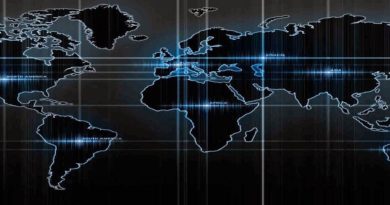How the Powers-That-Be Are Using Russia-Ukraine to Make America Commit Economic Suicide
In the movie Bourne Identity, the big reveal near the end has the antagonist explaining to hero Jason Bourne that he was sent in to kill an inconvenient world leader. The reason he was sent in instead of just using SEAL Team Six or a CIA sniper was because they needed it to look like the leader was killed by his own men. They arranged to get super-human weapon Bourne on the leader’s yacht so that when he was killed, it would appear as if someone in his crew pulled the trigger.
Doing this would keep the United States from being seen as sending an assassin. If all had gone as planned and Bourne hadn’t tapped into his repressed conscience just before taking the shot, the leader would have been killed and the killers would have gotten off scot-free. They could then swoop in as the good guys to stabilize the nation and usher in a regime of their choosing.
The World Economic Forum and their cabal of globalist elites need the world economies, particularly America’s economy, to collapse in order to achieve their goal of The Great Reset. To get the people to willfully accept the precepts of Neo-Marxism inherent in the tenets of The Great Reset, all other alternative systems must fail. Most Americans and arguably most citizens of the world would not accept The Great Reset unless it was the only choice.
But they have a challenge. They can’t just crash all the markets and rebuild from the ashes. They cannot be anywhere near the scene of the crime or the people may look at these elites as the root cause of the problem. If they thought they could get away with it, they would simply crash the markets and cause mass chaos. Yes, they do have that power, but they can’t wield it until economic collapse seems inevitable. Then, if they choose, they can strike the death blow by claiming that doing so is necessary for the rebuilding process to begin.
For their plans to work, they need America to commit economic suicide. Thus, we have the war in Ukraine. Skeptics will now chime in and claim that Klaus Schwab and the WEF do not control Vladimir Putin or Volodymyr Zelennsky. But just as Rothschilds and Rockefellers have done in the past, the globalist elites do not need direct control in order to manipulate the situation enough to cause their desired actions, even at a national level. Besides, I’m pretty sure Zelensky is beholden to Schwab, George Soros, Barack Obama, and other leaders of the cabal. And I wouldn’t say for certain that Putin isn’t somehow compromised, either.
The sanctions that governments are imposing on Russia combined with boycotts coming from major players in the private sector will not dissuade Russia from continuing forward. Their leaders cannot afford such a loss, so they will push forward to the bitter end. As Chris Cappy told me yesterday in an interview that will air soon, Putin would bomb Kyiv and call it a victory before he’d be willing to withdraw without his prize.
Therefore, the sanctions being placed on Russia at the behest of Soros, el al., will only serve to harm the Russian people as well as pretty much every other person on earth who isn’t part of the cabal. If the sanctions continue — and at this point they appear to be indefinite — then most of the world’s economies, particularly the U.S. economy, will eventually collapse.
For those who think my predictions are overblown, they’re not actually mine. The effects of the sanctions are concisely detailed in the article below by Gregory T. Chin from Free West Media:
Economic Sanctions Can Lead to Dire Unintended Consequences
From soaring gas prices to another world war, economic sanctions can lead to dire unintended consequences
Western governments have united to bring in a number of serious economic sanctions against Russia in retaliation for its violence in Ukraine, including the latest announcement that the United States is revoking Russia’s “most favoured nation” status that will impose new trade tariffs. The moves were not a surprise.
The U.S. and its western allies have increasingly turned to sanctions, investment bans, embargoes and other forms of economic warfare over the last two decades.
But sanctions and economic warfare give rise to unintended consequences. They can divert from diplomatic mediation and dialogue. They also carry a price for those applying the sanctions, as well as third parties who may be indirectly impacted by the sanctions.
The desire to use these financial tools is understandable, especially by the U.S. government, because it means avoiding armed conflict. After two decades of war in the Middle East and Afghanistan, economic warfare is more acceptable to war-weary western societies than boots on the ground.
Powerful nations often use economic warfare measures to avoid protracted or difficult diplomatic negotiations, or to weaken the target country for negotiations. Sometimes countries impose sanctions as a way to play for time or to strengthen their negotiating hand.




